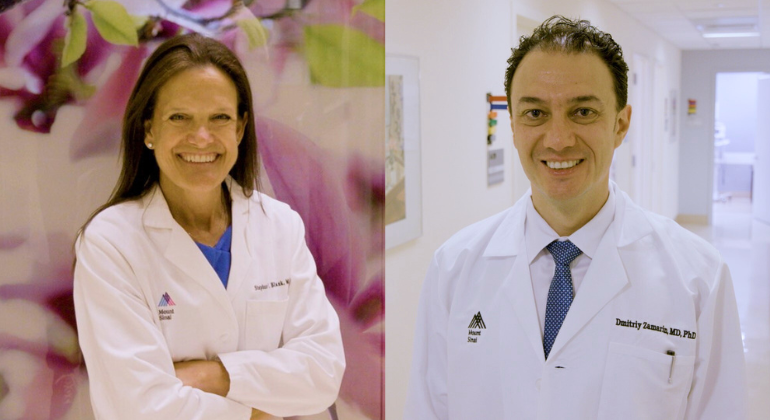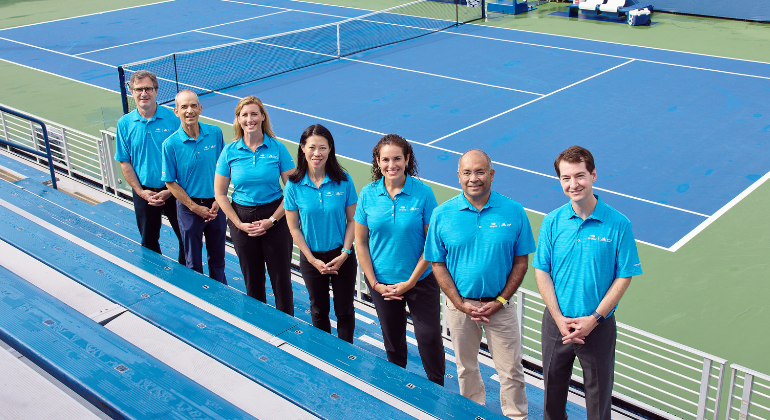Variations in Key Gene Predict Cancer Patients’ Risk for Radiation-Induced Toxicity
Key genetic variants may affect how cancer patients respond to radiation treatments, according to a study published this week in Nature Genetics. The research team, which included researchers at the Icahn School of Medicine at Mount Sinai, found that variations in the TANC1 gene are associated with a greater risk for radiation-driven side effects in prostate cancer patients, which include incontinence, impotence and diarrhea.
The current results are based on a genome-wide association study, a type of study in which researchers examine numerous genetic variants to see if any of them are associated with a certain type of complication, which could sometimes emerge years after treatment was completed.
“Our findings, which were replicated in two additional patient groups, represent a significant step towards developing personalized treatment plans for prostate cancer patients,” said Barry S. Rosenstein, PhD, Professor, Radiation Oncology, Genetics and Genomic Sciences, Icahn School of Medicine at Mount Sinai, the lead Mount Sinai investigator on the study. “Within five years, through the use of a predictive genomic test that will be created using the data obtained in the recent study, it may be possible to optimize treatment for a large number of cancer patients.”
For the study, Dr. Rosenstein and his team obtained blood samples from nearly 400 patients who were receiving radiotherapy treatment for prostate cancer. The blood samples were screened for roughly one million genetic markers, and each patient was monitored for at least two years to track incidents of side effects from the radiation. Data analysis showed which genetic markers were consistently associated with the development of complications following radiotherapy.
“The next step is to validate the results, and see if the same markers predict similar outcomes in patients with other forms of cancer,” said Dr. Rosenstein. Using the genomic test being developed, treatment plans can be adjusted to minimize adverse effects thereby allowing for an improved quality life for many cancer survivors.
This study was conducted in partnership with USC University Hospital Complex and Fundación Pública Galega de Medicina Xenómica-SERGAS, Santiago de Compostela, Spain; University of Cambridge, Cambridge, UK; and The University of Manchester, Christie Hospital, Manchester, UK.
About the Mount Sinai Health System
Mount Sinai Health System is one of the largest academic medical systems in the New York metro area, with 48,000 employees working across eight hospitals, more than 400 outpatient practices, more than 600 research and clinical labs, a school of nursing, and a leading school of medicine and graduate education. Mount Sinai advances health for all people, everywhere, by taking on the most complex health care challenges of our time—discovering and applying new scientific learning and knowledge; developing safer, more effective treatments; educating the next generation of medical leaders and innovators; and supporting local communities by delivering high-quality care to all who need it.
Through the integration of its hospitals, labs, and schools, Mount Sinai offers comprehensive health care solutions from birth through geriatrics, leveraging innovative approaches such as artificial intelligence and informatics while keeping patients’ medical and emotional needs at the center of all treatment. The Health System includes approximately 9,000 primary and specialty care physicians and 11 free-standing joint-venture centers throughout the five boroughs of New York City, Westchester, Long Island, and Florida. Hospitals within the System are consistently ranked by Newsweek’s® “The World’s Best Smart Hospitals, Best in State Hospitals, World Best Hospitals and Best Specialty Hospitals” and by U.S. News & World Report's® “Best Hospitals” and “Best Children’s Hospitals.” The Mount Sinai Hospital is on the U.S. News & World Report® “Best Hospitals” Honor Roll for 2024-2025.
For more information, visit https://www.mountsinai.org or find Mount Sinai on Facebook, Twitter and YouTube.





